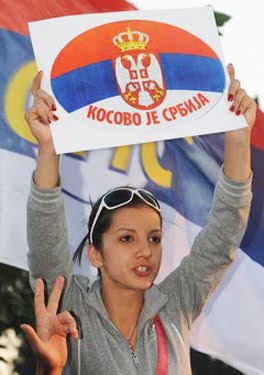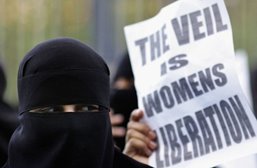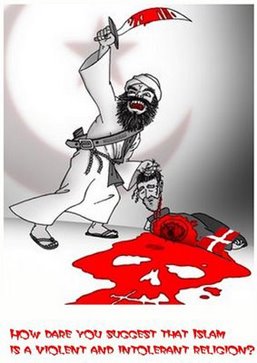
Het nieuws alszou Geert Wilders toch worden vervolgd voor anti-islamitische standpunten, lokt nu ook in groeiende mate internationale kritiek uit.
Zelfs de gezaghebbende Amerikaanse zakenkrant Wall Street Journal mengt zich in het debat en uit zware kritiek in een opiniestuk. "Er zijn uiteraard beperkingen aan de vrijheid van meningsuiting. Zo is het oproepen tot geweld niet aanvaardbaar", schrijft de krant. "Maar ook wie het niet eens is met Geert Wilders moet vaststellen dat hij die lijn niet overschreden heeft."
"Als vrijheid van meningsuiting belangrijk is, dan is het net om het recht op controversiële meningen te vrijwaren. Conventionele meningen hebben geen bescherming nodig."
"De beslissing van het Nederlandse gerecht om Wilders nu toch te vervolgen, is een grote overwinning voor islamistische regimes die hun censuur overal waar moslims wonen, willen opleggen", klinkt het terecht in de Wall Street Journal. "Succesvolle integratie van moslims in het Westen vraagt net dat moslims zich aanpassen aan de westerse normen en niet omgekeerd."
Deze zoveelste zet van de appeasers van het islamisme zal geen succes kennen. Hogere rechters zullen elk vonnis van tafel vegen, daar twijfelen we geen seconde aan.
Bovendien kan dit proces, als het er al komt, een boemerangeffect krijgen: de Nederlanders hebben met het rookverbod in drankgelegenheden al rebellerend laten zien dat de regeltjesschijterij in Nederland hen de strot uitkomt. Voor Wilders zijn populariteit als politicus betekent een islamproces enkele honderdduizenden extra stemmen bij de volgende verkiezingen.
Hier de originele versie van genoemd opiniestuk:
The latest twist in the clash between Western values and the Muslim world took place yesterday in the Netherlands, where a court ordered the prosecution of lawmaker and provocateur Geert Wilders for inciting violence. The Dutch MP and leader of the Freedom Party, which opposes Muslim immigration into Holland, will stand trial soon for his harsh criticism of Islam.
Mr. Wilders made world news last year with the short film "Fitna." In the 15-minute video, he juxtaposes Koranic verses calling for jihad with clips of Islamic hate preachers and terror attacks. He has compared the Koran to Hitler's "Mein Kampf" and urged Muslims to tear out "hate-filled" verses from their scripture. This is a frontal assault on Islam -- but, as Mr. Wilders points out, he's targeting the religion, not its followers. "Fitna," in fact, sparked a refreshing debate between moderate Muslims and non-Muslims in the Netherlands, and beyond.
There are of course limits to free speech, such as calls for violence. But one doesn't need to agree with Mr. Wilders to acknowledge that he hasn't crossed that line. Some Muslims say they are outraged by his statements. But if freedom of speech means anything, it means the freedom of controversial speech. Consensus views need no protection.
This is exactly what Dutch prosecutors said in June when they rejected the complaints against Mr. Wilders. "That comments are hurtful and offensive for a large number of Muslims does not mean that they are punishable," the prosecutors said in a statement. "Freedom of expression fulfills an essential role in public debate in a democratic society. That means that offensive comments can be made in a political debate."
The court yesterday overruled this decision, arguing that the lawmaker should be prosecuted for "inciting hatred and discrimination" and also "for insulting Muslim worshippers because of comparisons between Islam and Nazism." This is no small victory for Islamic regimes seeking to export their censorship laws to wherever Muslims reside. But the successful integration of Muslims in Europe will require that immigrants adapt to Western norms, not vice versa. Limiting the Dutch debate of Islam to standards acceptable in, say, Saudi Arabia, will only shore up support for Mr. Wilders's argument that Muslim immigration is eroding traditional Dutch liberties.
Hier de originele versie van genoemd opiniestuk:
The latest twist in the clash between Western values and the Muslim world took place yesterday in the Netherlands, where a court ordered the prosecution of lawmaker and provocateur Geert Wilders for inciting violence. The Dutch MP and leader of the Freedom Party, which opposes Muslim immigration into Holland, will stand trial soon for his harsh criticism of Islam.
Mr. Wilders made world news last year with the short film "Fitna." In the 15-minute video, he juxtaposes Koranic verses calling for jihad with clips of Islamic hate preachers and terror attacks. He has compared the Koran to Hitler's "Mein Kampf" and urged Muslims to tear out "hate-filled" verses from their scripture. This is a frontal assault on Islam -- but, as Mr. Wilders points out, he's targeting the religion, not its followers. "Fitna," in fact, sparked a refreshing debate between moderate Muslims and non-Muslims in the Netherlands, and beyond.
There are of course limits to free speech, such as calls for violence. But one doesn't need to agree with Mr. Wilders to acknowledge that he hasn't crossed that line. Some Muslims say they are outraged by his statements. But if freedom of speech means anything, it means the freedom of controversial speech. Consensus views need no protection.
This is exactly what Dutch prosecutors said in June when they rejected the complaints against Mr. Wilders. "That comments are hurtful and offensive for a large number of Muslims does not mean that they are punishable," the prosecutors said in a statement. "Freedom of expression fulfills an essential role in public debate in a democratic society. That means that offensive comments can be made in a political debate."
The court yesterday overruled this decision, arguing that the lawmaker should be prosecuted for "inciting hatred and discrimination" and also "for insulting Muslim worshippers because of comparisons between Islam and Nazism." This is no small victory for Islamic regimes seeking to export their censorship laws to wherever Muslims reside. But the successful integration of Muslims in Europe will require that immigrants adapt to Western norms, not vice versa. Limiting the Dutch debate of Islam to standards acceptable in, say, Saudi Arabia, will only shore up support for Mr. Wilders's argument that Muslim immigration is eroding traditional Dutch liberties.


































